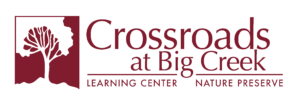Learn to Improve Habitat Naturally at Master Gardeners Lecture
- Share
- Tweet
- Pin
- Share
On Jan. 12 at 7 pm, the Door County Master Gardener’s Association Continuing Education Program will present “Improving Habitat with Native Plants” at Crossroads at Big Creek in Sturgeon Bay. Coggin Heeringa is the presenter.
Most gardeners love songbirds, butterflies and other wildlife. Recent research on the interactions between plants and wildlife done by Dr. Doug Tallamy, at the University of Delaware, makes a compelling case for landscaping with native plants rather than alien ornamentals. This multimedia program will be based on the findings and writings of Dr. Tallamy and will demonstrate how landscape decisions impact the diversity of life on the Door Peninsula.
Native butterflies do not lay their eggs on introduced species of plants. Consequently, gardens and landscapes filled with alien plants lack caterpillars. According to Dr. Tallamy, “This may sound like a gardener’s dream: a land without insects, but because so many animals depend partially or entirely on insect protein for food, a land without insects is a land without most forms of higher life.”
By selecting host plants, the native species on which moths and butterflies lay their eggs, local gardeners will attract and support breeding birds and other wildlife, creating habitats that are attractive and in balance without the use of pesticides. A handout listing of plants that are native to Door County will be available at the program.
Heeringa holds an M.S. degree in environmental studies. She is a member of the Master Gardeners of Door County and serves as Director of Crossroads at Big Creek, Inc. During the summer, she teaches Environmental Studies at the Interlochen Center for the Arts.
For more information visit dcmga.org.

